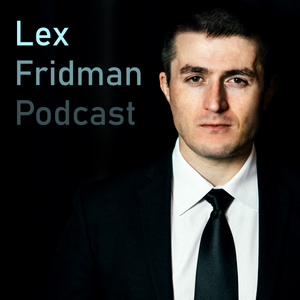
Gained in Translation (rebroadcast)
05/25/20 • 54 min
Your virtual assistant is not without a sense of humor. Its repertoire includes the classic story involving a chicken and a road. But will Alexa laugh at your jokes? Will she groan at your puns?
Telling jokes is one thing. Teaching a computer to recognize humor is another, because a clear definition of humor is lacking. But doing so is a step toward making more natural interactions with A.I.
Find out what’s involved in tickling A.I.’s funny bone. Also, an interstellar communication challenge: Despite debate about the wisdom of transmitting messages to space, one group sends radio signals to E.T. anyway. Find out how they crafted a non-verbal message and what it contained.
Plus, why using nuanced language to connive and scheme ultimately turned us into a more peaceful species. And yes, it’s all gouda: why melted cheese may be the cosmic message of peace we need.
Guests:
- Julia Rayz – Computer scientist and associate professor at Purdue University’s Department of Computer and Information Technology
- Steve Adler – Mayor of Austin, Texas
- Doug Vakoch – Psychologist and president of the non-profit organization METI International
- Richard Wrangham – Biological anthropologist at Harvard University and author of “The Goodness Paradox: The Strange Relationship Between Virtue and Violence in Human Evolution”
Originally aired April 22, 2019
Learn more about your ad choices. Visit megaphone.fm/adchoices
Your virtual assistant is not without a sense of humor. Its repertoire includes the classic story involving a chicken and a road. But will Alexa laugh at your jokes? Will she groan at your puns?
Telling jokes is one thing. Teaching a computer to recognize humor is another, because a clear definition of humor is lacking. But doing so is a step toward making more natural interactions with A.I.
Find out what’s involved in tickling A.I.’s funny bone. Also, an interstellar communication challenge: Despite debate about the wisdom of transmitting messages to space, one group sends radio signals to E.T. anyway. Find out how they crafted a non-verbal message and what it contained.
Plus, why using nuanced language to connive and scheme ultimately turned us into a more peaceful species. And yes, it’s all gouda: why melted cheese may be the cosmic message of peace we need.
Guests:
- Julia Rayz – Computer scientist and associate professor at Purdue University’s Department of Computer and Information Technology
- Steve Adler – Mayor of Austin, Texas
- Doug Vakoch – Psychologist and president of the non-profit organization METI International
- Richard Wrangham – Biological anthropologist at Harvard University and author of “The Goodness Paradox: The Strange Relationship Between Virtue and Violence in Human Evolution”
Originally aired April 22, 2019
Learn more about your ad choices. Visit megaphone.fm/adchoices
Previous Episode

Vaccine, When?
It will be the shot heard ‘round the world, once it comes. But exactly when can we expect a COVID vaccine? We discuss timelines, how it would work, who’s involved, and the role of human challenge trials.
Also, although he doesn’t consider himself brave, we do. Meet a Seattle volunteer enrolled in the first coronavirus vaccine trial. And, while we mount an elaborate defense against a formidable foe, scientists ask a surprising question: is a virus even alive?
Guests:
- Nigel Brown – Emeritus Professor of Molecular Microbiology at the University of Edinburgh
- Ian Haydon – Public information specialist at the University of Washington, Seattle
- Bonnie Maldonado – Professor of Pediatrics and Infectious Diseases at the Stanford University School of Medicine
- Paul Offit – Head of the Vaccine Education Center, and chief of the Division of Infectious Diseases, at Children’s Hospital of Philadelphia
Learn more about your ad choices. Visit megaphone.fm/adchoices
Next Episode

Soap, Skin, Sleep
Some safeguards against COVID-19 don’t require a medical breakthrough. Catching sufficient Z’s makes for a healthy immune system. And, while you wash your hands for the umpteenth time, we'll explain how soap sends viruses down the drain. Plus, your body’s largest organ – skin – is your first line of defense against the pandemic and is also neglected because of it. Find out why we're suffering from "skin hunger" during this crisis.
Guests:
- Cody Cassidy – Author, “Who Ate the First Oyster: The Extraordinary People Behind the Greatest Firsts in History.”
- Nina Jablonski – Anthropologist, paleobiologist at Pennsylvania State University and author of “Skin: A Natural History.”
- Eti Ben Simon – Neuroscientist and sleep researcher, Center for Human Sleep Science, University of California, Berkeley
Learn more about your ad choices. Visit megaphone.fm/adchoices
If you like this episode you’ll love
Episode Comments
Generate a badge
Get a badge for your website that links back to this episode
<a href="https://goodpods.com/podcasts/big-picture-science-94103/gained-in-translation-rebroadcast-5051002"> <img src="https://storage.googleapis.com/goodpods-images-bucket/badges/generic-badge-1.svg" alt="listen to gained in translation (rebroadcast) on goodpods" style="width: 225px" /> </a>
Copy




